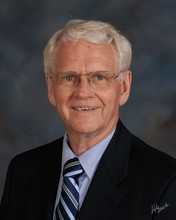I probably owe my passion for religious education to my sister – she is nine years my senior and a religious of the Sisters of St. Joseph. In the early ‘60s she was studying at Catholic University and I can remember her telling me about the Adam and Eve story. I was in my early 20s and had just begun a career as a high school teacher and by circumstance of the sickness of one of the brothers I was called into teaching religion class for the remaining six weeks of the school year. She talked to me about this story not from the sensationalism of “it isn’t true” – demythologization, but from the perspective of how powerful this mythological language was expressing the human understanding of relationship with God. This gave me a great passion for talking to these young freshmen high school students about the deeper meaning of the Bible. And that has been the passion of religious education for me – the power of religious expression.
Autobiographically, my first journey into formal studies in religious education was a 14 month period from June 1965 to August 1966: Loyola University Chicago MRE in the newly founded Institute of Pastoral Studies and a year at Lumen Vitae – international Institute for Catechetics Brussels Belgium. In Brussels there were 110 students representing 90 different nationalities. What’s important is that this education began six months before the ending of the Catholic Church’s monumental second Vatican Council a redirecting of the power of religious expression. I can remember when I protested that I was unprepared to teach religion in the high school, the priest chairman of the department said – you’re not alone, this is a whole new religion that’s coming out of Vatican II.
The major focus I picked up in my first venture into graduate education was a concern for updating religion teachers. This passion led me into my first higher ed position – forming an MA program in religious education at the Divinity School of St. Louis University. The major strain that captured my attention in forming this program was to draw on all that was good in education studies. Major texts for me were Tyler’s Basic Principles of Curriculum and Instruction, Bloom’s taxonomies of educational objectives (my first published article in 1971 was on the adaptation of Bloom’s taxonomies to religious education), basic philosophies of education and curriculum, histories of education – particularly Lawrence Cremin. In my philosophical foundations I found myself highly influenced by the philosophy of the social sciences.
In 1975 I finished my doctoral dissertation at the University of Notre Dame out of a unique Religious Education program that was located in the division of social sciences. I focused on a Weberian ideal type analysis of the mission and ministry of Catholic education in the United States in the nineteen century. During this decade from 1965 to 1975 I was constantly nurtured and intensely engaged in conversations at APPRE and the REA, particularly when APPRE met jointly with the SSSR. This association broadened not only my intellectual but my ecumenical focus.
In 1975 I began teaching in a Catholic seminary in Denver Colorado and enhanced my focus on religious education to a focus on ministerial education. The major contribution that I gained from seminary education was an intense involvement in field education – learning in the doing. In 1976 at the APPRE meeting I made a presentation on contextual education and its relationship to religious education. A major text for me in this period was Whitehead and Whitehead, Method in Ministry.
Perhaps the apex of my career in religious education was becoming an original faculty member along with four others at the reconstituted Scarritt Graduate School in Religious Education in Nashville from 1981 to 1987. Here I benefited not only as a colleague with other dedicated religious educators but also by interaction with Vanderbilt divinity school in its heyday with such educational leaders as Ed Farley and his concentration on theology and ministry. His Theologia: The Fragmentation and Unity of Theological Education was a key text for me.
These first 25 years prepared me for the second 25 years which were spent at the Institute of Pastoral Studies Loyola University Chicago. My major concentration there was on developing ministerial education in terms of its relationship of the components of ministry and theology – their praxis relationship and a concentration on contextual education. Perhaps one of the most formative texts for me in this period was Donald Schön, The Reflective Practitioner along with Don Browning’s A Fundamental Practical Theology.
The power of religious expression drove my 50 years in religious education. Clearly this was a sacramental task bringing all human science can to form a symbol which hurls over to the transcendent.
